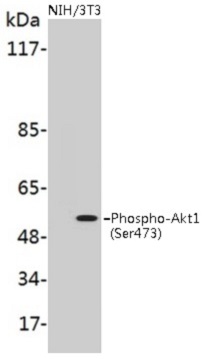The Akt family, comprising Akt1, Akt2, and Akt3, also referred to as protein kinase B isoforms, plays a pivotal role in regulating critical cellular processes, including growth, metabolism, and survival. Akt1, the most extensively studied isoform, is central to anti-apoptotic signaling, translocating from the cytoplasm to the plasma membrane upon activation by upstream kinases such as PI3K and PDK1. This membrane localization allows phosphorylation at Thr308 and Ser473, modifications necessary for full activation and interaction with downstream targets like glycogen synthase kinase-3 beta (GSK-3β) and mammalian target of rapamycin (mTOR). These interactions influence diverse cellular responses, including glucose uptake, protein synthesis, and cell cycle progression. Akt2, predominantly expressed in insulin-responsive tissues, regulates glucose metabolism, while Akt3 is implicated in brain development and function. The precise regulation of these isoforms through phosphorylation and localization underscores their importance in maintaining cellular homeostasis. Dysregulation of Akt signaling is associated with various diseases, including cancer, diabetes, and neurodegenerative disorders. |
 Italy
Italy


